#FreedomNets of Ukraine’s Independence Day
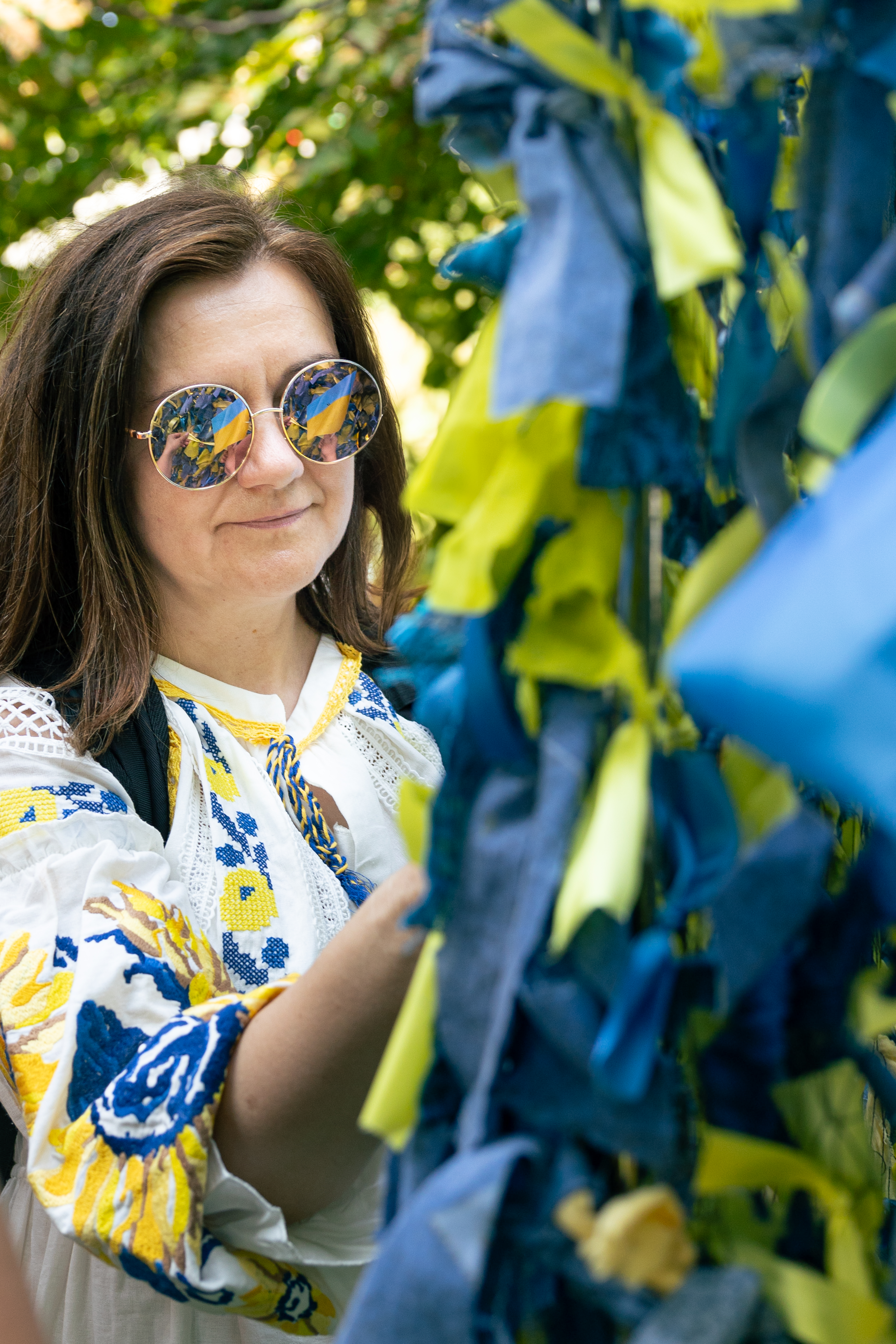
Photo: #FreedomNets in Maastricht.
On August 24, 2024, as Ukraine proudly marked its 33rd independence anniversary with the Run for Ukraine 2024 taking center stage in the Netherlands, VATAHA Foundation also hosted another significant event—#FreedomNets 2024—that carried its own meaningful message. #FreedomNets 2024 is a joint project of the VATAHA Foundation and artist Daria Pugachova organized together with the Ukrainians of Roermond that took place in seven cities across the Netherlands and united people through art, memory, and community.
The Power of Weaving: From Camouflage to Symbols of Resistance
Since the start of the full-scale war, Ukrainians all over the world—both at home and abroad—have taken up weaving camouflage nets to help soldiers on the frontlines. What began as a way to hide soldiers from the enemy quickly grew into something bigger. These nets became symbols of our resistance and unity. Through weaving, Ukrainians and their supporters have found a meaningful way to help in the fight for independence.
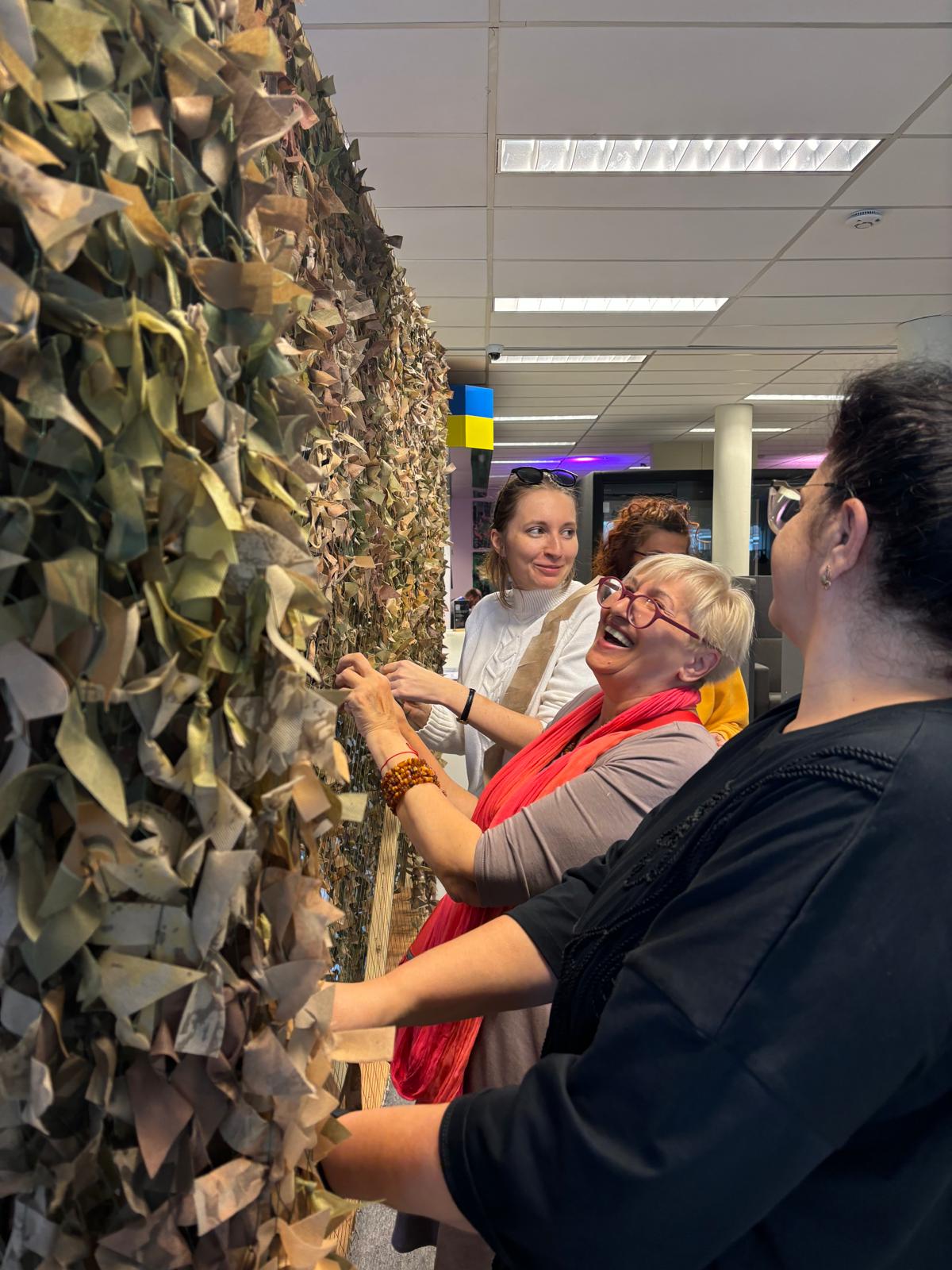
Photo: Volunteers weaving camouflage net for the frontline in the Ukrainian House in Rotterdam.
For many artists the nets and their weaving became a powerful artistic statement. Camouflage nets became canvases for expression, inspiring projects like Daria Pugacheva’s “Shelter for Freedom.” In this performance, that travels around the globe since the beginning of the full-scale invasion, Daria uses net weaving as a medium to explore freedom, memory, and protection. In 2024 together with Daria we decided too take this concept further with the #FreedomNets initiative.
Weaving Freedom Across the Netherlands
On Independence Day, our #FreedomNets event connected Ukrainians, Dutch locals, and international supporters in a shared goal. In Amsterdam, Maastricht, Roermond, Utrecht, The Hague, Haarlem, and Breda, people gathered to weave three special types of nets. Each one carried its own unique meaning.
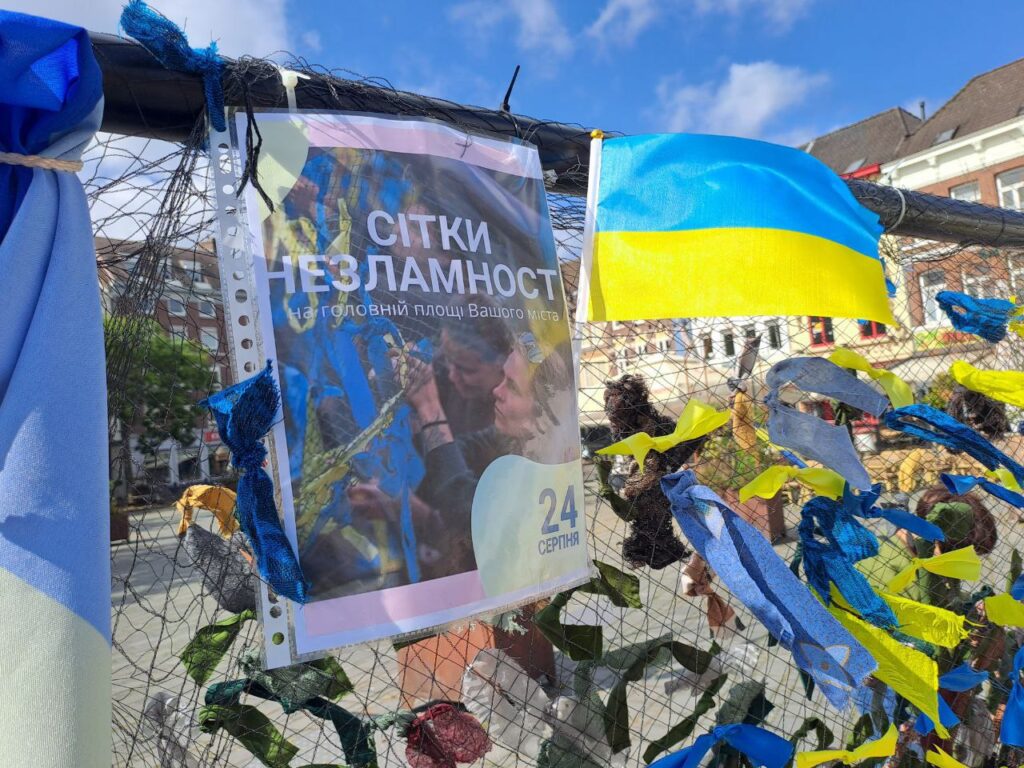
Photo: #FreedomNets in Roermond.
FREEDOM NETS: A Tapestry of Hope and Liberation
The first type, FREEDOM NETS, was woven in yellow and blue, the colors of the Ukrainian flag. As part of Pugacheva’s performance “Shelter for Freedom”, these nets represented the undying hope for liberation. Participants tied ribbons of yellow and blue onto the nets, they not only expressed their desire for Ukraine’s freedom but also formed a vibrant tapestry of global solidarity.
“On Independence Day, Ukrainians from the city of Breda organized an event to thank the residents of the Netherlands for their help. We gave flowers to passers-by and offered to tie a yellow or blue ribbon on the net. We are grateful to the #FreedomNets project for the motivation to hold such an event.” — Vladyslav, Breda
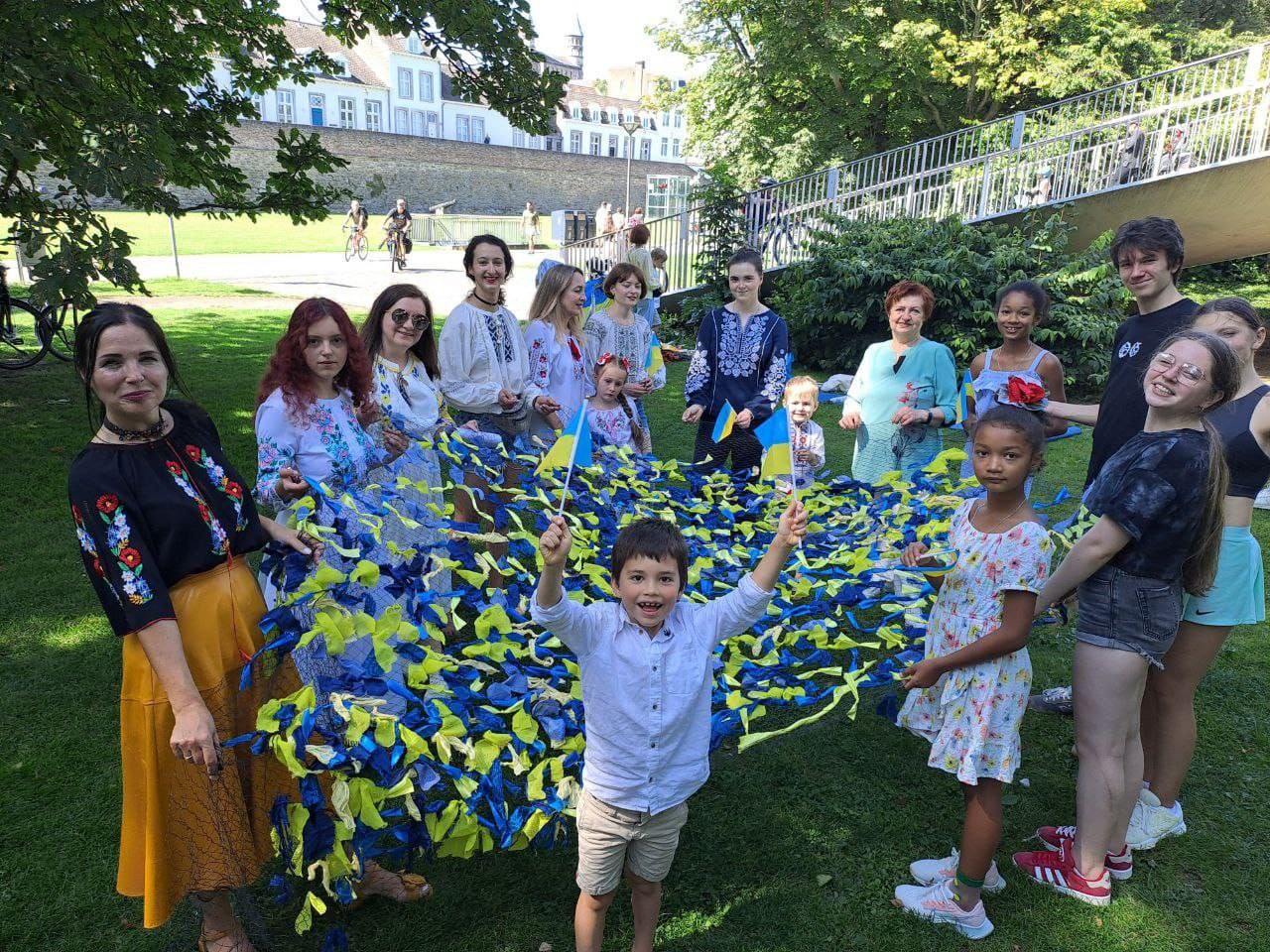
Photo: #FreedomNets in Maastricht.
In Amsterdam, Natalia shared how the simple act of tying ribbons became a powerful ritual of unity:
“We saw how Ukrainians, foreigners, and locals showed sincere emotion at the ritual, and all the time there were people near the net—standing five or six at a time and waiting in line. Even when it started to rain, people still continued to hang ribbons.”
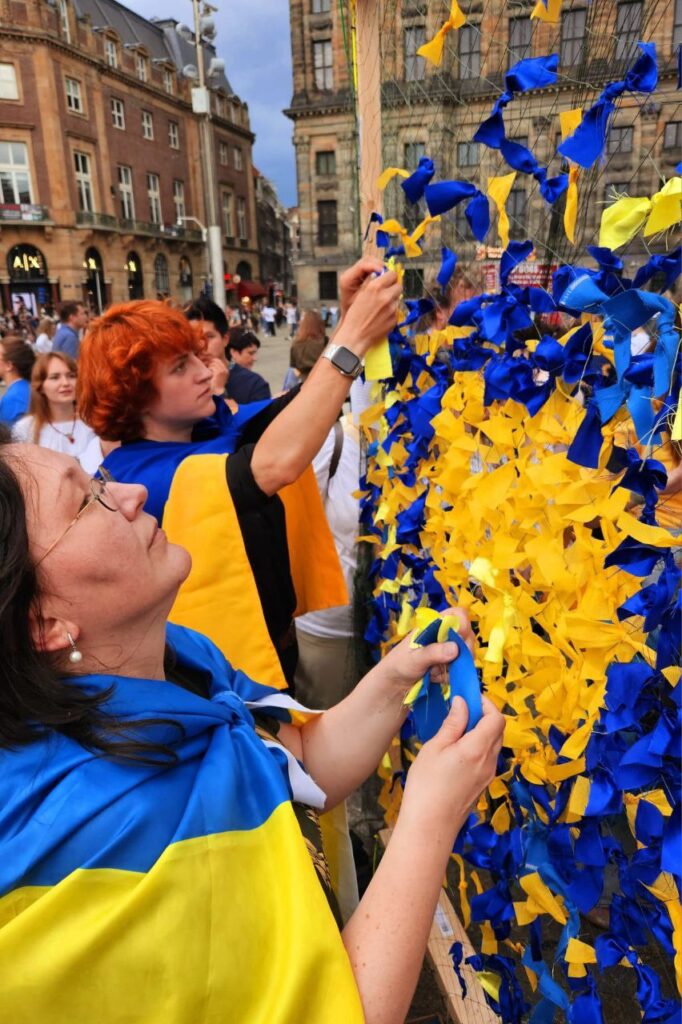
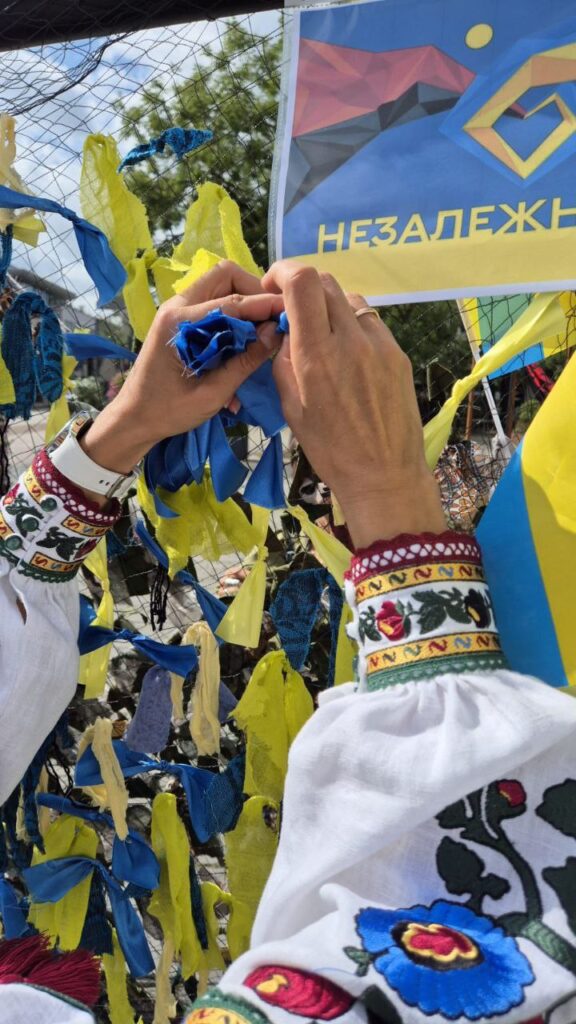
Photo: #FreedomNets in Amsterdam (on the left) and in Roermond (on the right).
PROTECTION NETS: Supporting Our Soldiers
The second type of net was the PROTECTION NET. These camouflage nets are made specifically for soldiers on the frontlines. In several Ukrainian communities in the Netherlands, Ukrainians have been making these nets throughout the last two years to send to the frontline. But on this day, anyone could stop and help them weave. Of course, the more hands, the faster the work is completed. It was a powerful reminder of how we’re all connected in this fight.
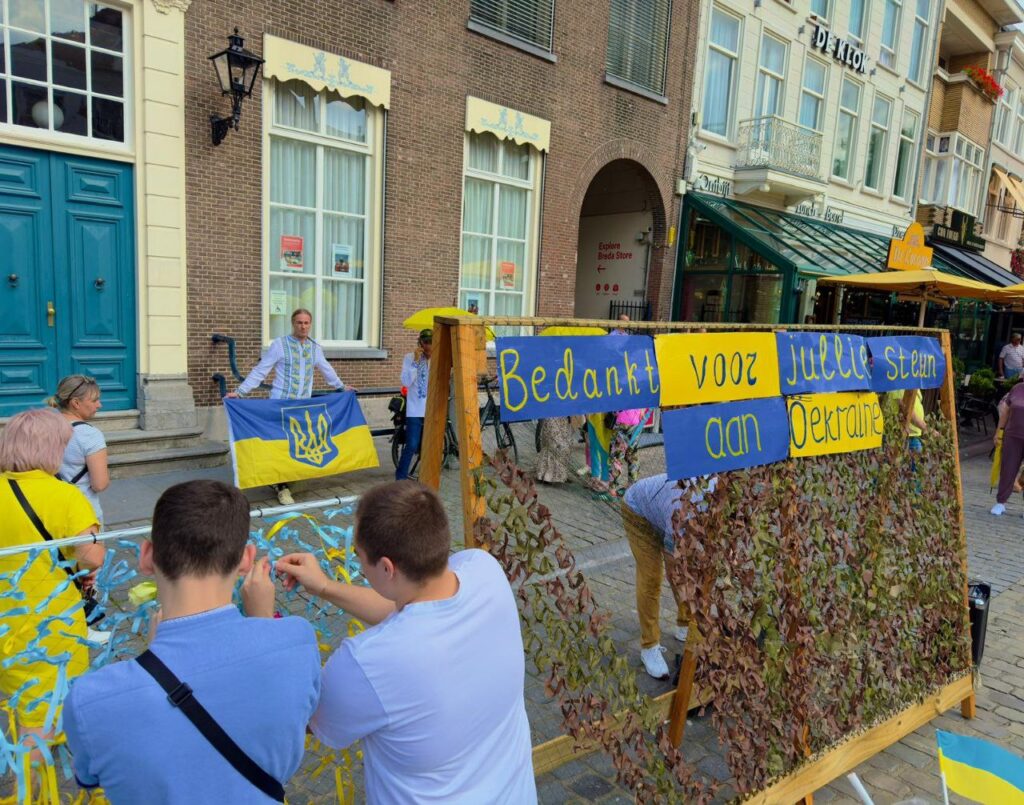
Photo: #FreedomNets in Breda.
“Participation in the performance of weaving nets of unbreakability became an important symbol of the unity and stability of our people. Each knot on this net is a contribution to our joint victory, a sign of our solidarity and support. We felt incredible energy from this shared work, which inspires new achievements.” — Julia, Utrecht
MEMORY NETS: Honoring the Fallen
The third and perhaps most moving type of net was the MEMORY NET. These nets, woven entirely from white fabric, were inscribed with the names of those who had lost their lives in the war. Participants could not only write the names of their loved ones but also share their stories, creating a deeply emotional and therapeutic space. The MEMORY NETS were not just a tribute to the fallen but a communal act of remembrance and healing.
“While we wove the names of our lost ones into the net, we remembered the heroes who defend Ukraine and those who gave their lives for its independence. Many people read stories next to the memory grid, some even came specifically to put the name of a loved one on the net.” — Valeria, Haarlem
In The Hague, people also came to honor those they had lost. It was a deeply emotional experience for everyone involved:
“It was especially painful when people asked how many ribbons they could take so they could add more names. Even foreigners were moved by the stories of loss and bravery.” — Vlada, The Hague
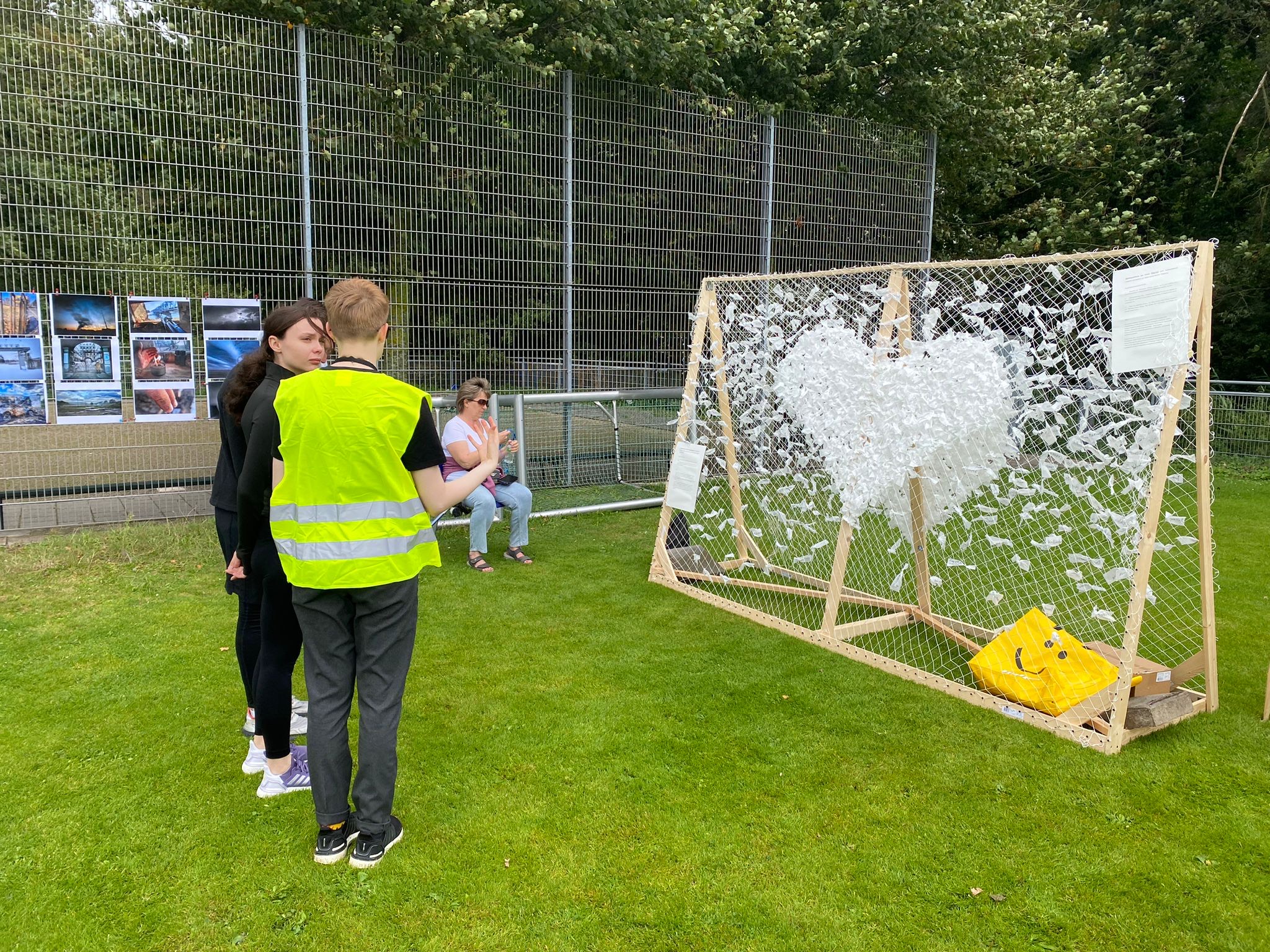
Photo: Memory net in the Hague
Unity in the Face of Aggression
The #FreedomNets event wasn’t just about weaving—it was about coming together. By tying ribbons, helping to weave nets for soldiers, or adding names to the MEMORY NET, we created a strong sense of community. We were reminded that even in difficult times, we stand united.
“It became a moment of unity and an opportunity to demonstrate that we share and defend democratic values, which shows that people feel the need for belonging and support, and freedom and memory will always be in the first place for us.” — Olga, Maastricht
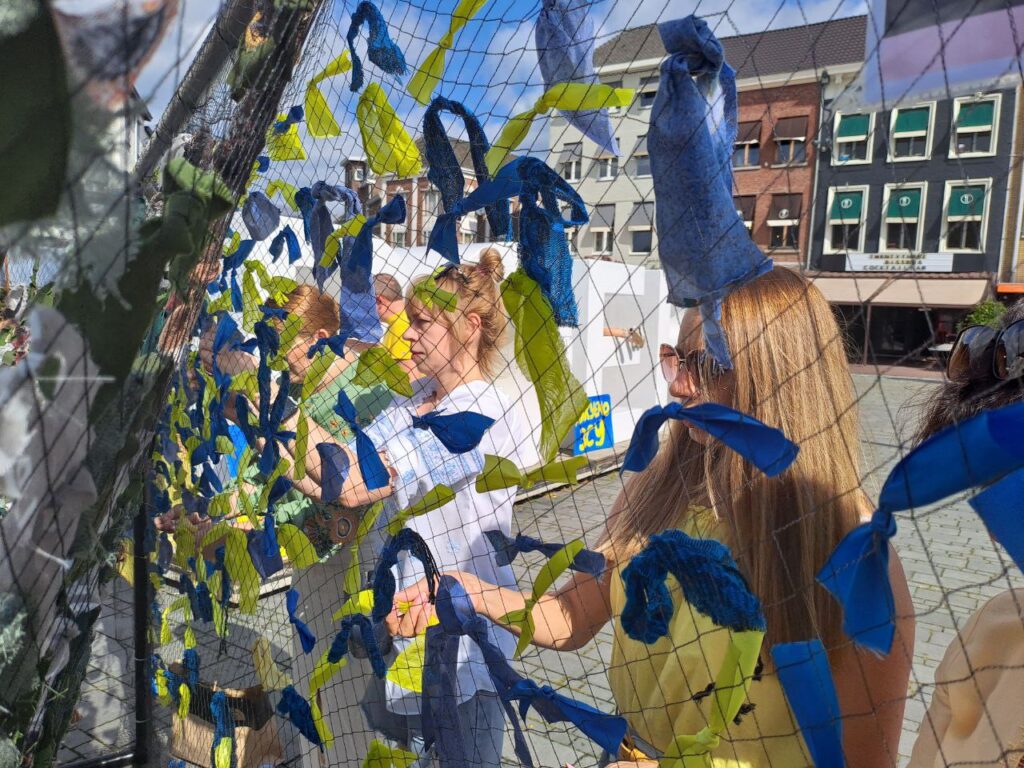
Photo: #FreedomNets in Roermond.
Through art, remembrance, and the simple act of weaving, the #FreedomNets event highlighted the unbreakable spirit of the Ukrainian people and their steadfast commitment to their country’s independence. It was a day of reflection, action, and above all, a reaffirmation that the world stands with Ukraine in its struggle for freedom.
As the co-organizer of the event in Roermond, Hanna Zhikhareva-Tolstik, said:
“We wove and sang, thinking about Ukrainians. About Cossacks, who, just like in our songs hundreds of years ago, were saving our beautiful land. We all cried to the song ‘Hey Falcons,’ feeling how much it hurts there at the front… It was an extremely emotional project.”
In Roermond, Hanna Zhikhareva-Tolstik and her daughters, Eva (12) and Veronika (13), along with their friend Diana (13), were interviewed by NPO Radio 1 on the program Wie luistert, weet meer (“Who listens, knows more”). During the interview, they discussed the concept behind the #FreedomNets initiative.
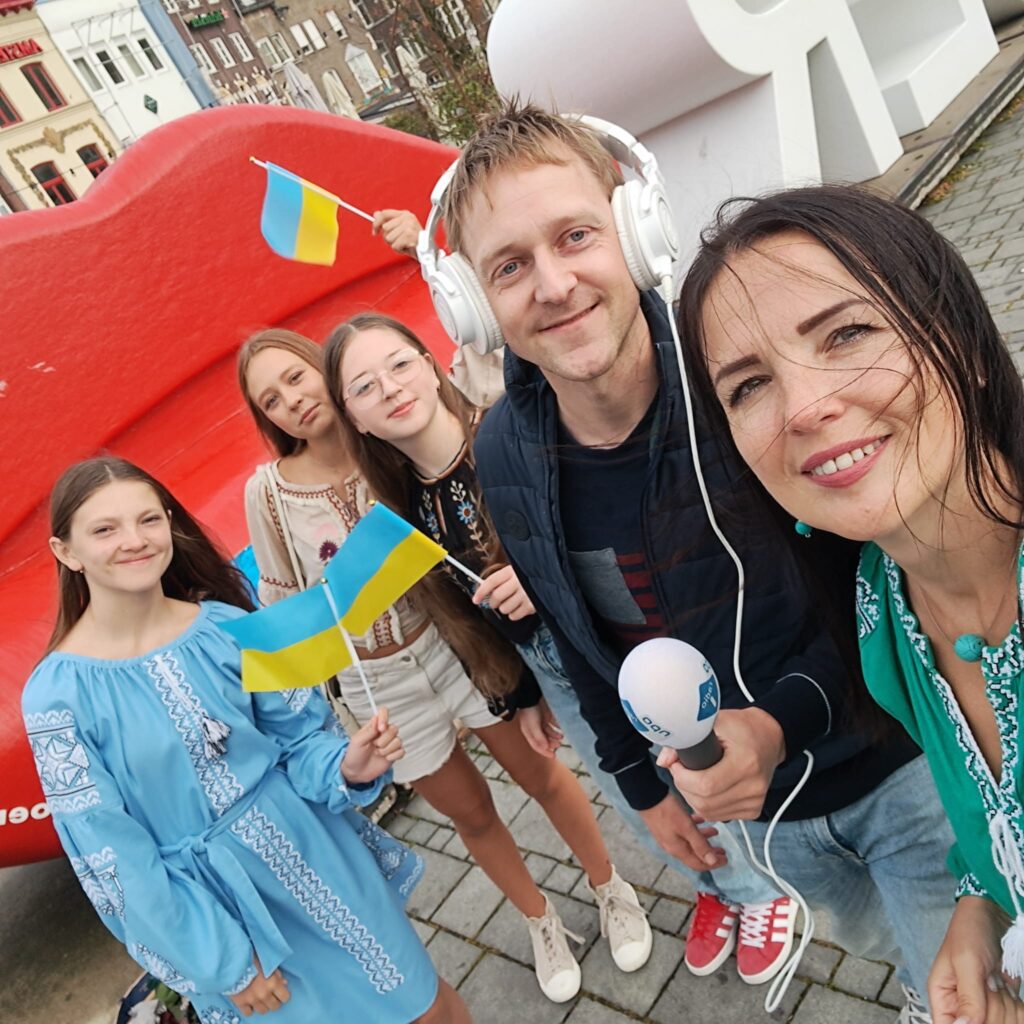
You can listen to the broadcast here:
In every knot tied, every story shared, and every ribbon woven, the #FreedomNets event became a living testament to the resilience of a nation and the strength of a global community united by a common cause: freedom.
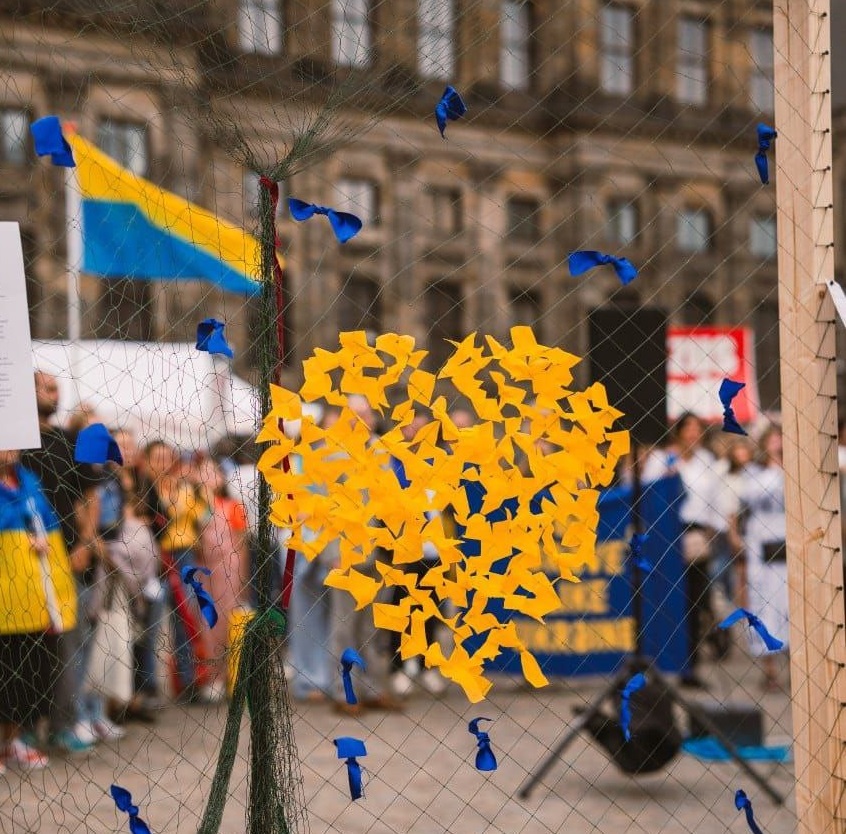
Photo: #FreedomNets in Amsterdam.
Special thanks to Platon Tolstik, who collected feedback from participants and organizers of the event specially for VATAHA.